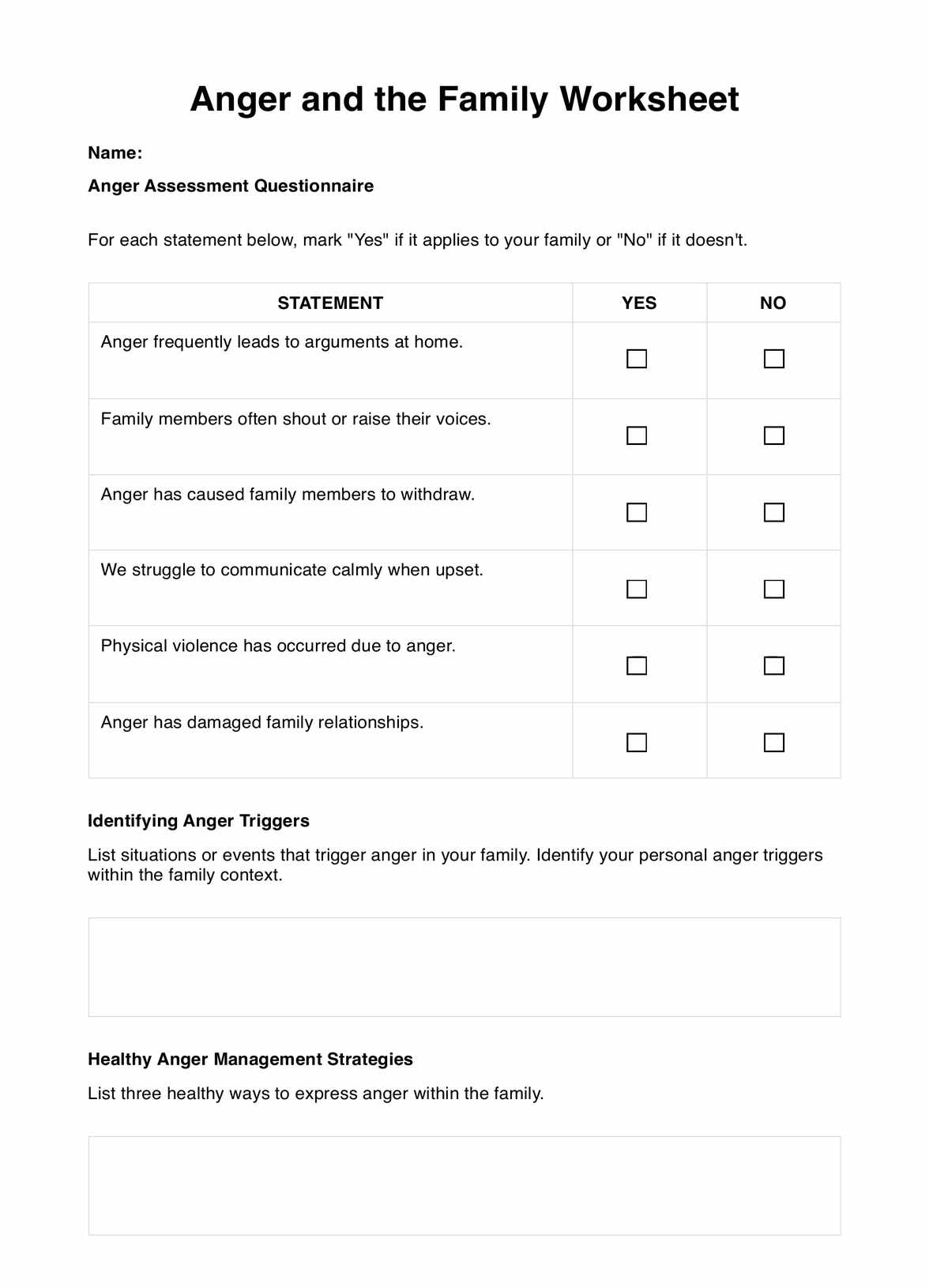Completing the worksheet varies, usually taking one or two 30-minute to 1-hour sessions.

Anger and the Family Worksheet
Looking to improve family dynamics? Explore the benefits of the Anger and the Family Worksheet for better communication and anger management.
Use Template
Anger and the Family Worksheet Template
Commonly asked questions
The worksheet helps identify and address family anger issues, promoting better communication and healthy anger management.
Use the worksheet when there are family anger problems, whether in therapy, counseling, or education, to enhance communication and resolve conflicts.
EHR and practice management software
Get started for free
*No credit card required
Free
$0/usd
Unlimited clients
Telehealth
1GB of storage
Client portal text
Automated billing and online payments











